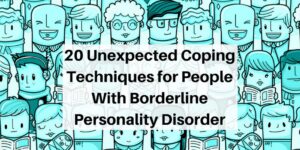Growing up too fast or too soon can impact you heavily, even in adulthood.
Growing up too quickly can have profound and lasting impacts on one’s life, a phenomenon often referred to as “hurried child syndrome.” This syndrome occurs when children are pressured to perform and take on responsibilities at an early age, often at the expense of their natural developmental needs. While this can lead to impressive achievements in the short term, the long-term effects can be detrimental.
As these children transition into adulthood, the pressures and expectations they faced can manifest in various ways. The effects of hurried child syndrome often mutate in adulthood, shaping behaviors, emotional responses, and overall well-being in ways that are not immediately apparent but are profoundly significant.
Here are three signs that you were a “hurried child” and how this may affect you now.
1. You Have a Debilitating Fear of Failure

A “hurried child” often becomes a perfectionistic adult. According to a 2019 study published in Frontiers in Psychology, these traits emerge from the pressure to meet high expectations and criticism from external sources. As a result, children set high standards for themselves, influenced by adult role models and selective reinforcement.
When their performance doesn’t match their standards or they face external judgment, they may also evaluate themselves negatively. This constant pressure to perform can lead to a fear of failure in adulthood. Adults with perfectionistic tendencies might exhibit the following:
- A fear of making mistakes. The fear of not meeting high standards can be paralyzing, causing individuals to avoid taking any risks and struggle with decision-making. This fear often manifests as procrastination, where they delay tasks because they’re anxious about not achieving perfection. This constant worry can create a cycle of indecisiveness, leading to missed opportunities and heightened stress.
- An avoidance of new challenges. To circumvent the possibility of failure, these individuals may shy away from new challenges and experiences. This avoidance limits their growth potential and stifles opportunities for learning and self-improvement. As a result, their personal and professional development may stagnate and they may miss out on valuable life experiences.
- Burnout from overworking. Perfectionists may push themselves to the limit, working long hours and taking on excessive responsibilities, as they feel compelled to meet or exceed their own high expectations. This relentless pursuit of excellence can result in physical and emotional exhaustion, making it difficult to maintain a healthy work-life balance.
2. You Struggle to Enjoy Downtime

Children who miss out on unstructured play often struggle to relax and enjoy leisure activities later in life. The inability to unwind and benefit from downtime during childhood may persist in adulthood, manifesting in various ways:
- Feeling guilty when resting. Many adults feel a deep sense of guilt when they take time to rest, believing they should always be productive. These adults may struggle to sit still, always seeking out tasks or projects to keep themselves busy. They fear “wasting time,” which can lead to burnout and prevent the enjoyment of quiet, restorative moments.
- Struggling to enjoy hobbies. Even hobbies can feel like tasks that must be completed to a high standard, making it difficult to enjoy them simply for pleasure. This drive to excel in every aspect of life often transforms leisure activities into another source of pressure. Instead of providing a relaxing escape, hobbies become arenas for achievement, where the focus is on perfecting skills or creating impressive results.
- Having trouble staying present. Adults who were hurried as children may find it challenging to practice mindfulness or be in the present moment. Their minds are often racing with thoughts of what needs to be done next, making it hard to focus on and enjoy the present. This constant forward-thinking mentality can prevent them from fully experiencing and savoring moments of downtime.
3. You Are Disconnected From Your “Inner Child”

Free, unstructured time is essential for nurturing creativity and playfulness. When children lack this freedom, they miss critical opportunities to develop and refresh their creative skills.
A 2021 study found that employees experienced a significant boost in creativity after returning from vacation, underscoring the importance of unstructured time for boosting creative thinking. This connection highlights why, without these formative experiences of unstructured play during childhood, people may struggle to fully develop and nurture their creative abilities into adulthood.
Here are a few ways in which the suppression of creativity and play as a child can affect an adult:
- They may struggle with thinking outside the box. This can happen when one hasn’t developed the flexibility and imagination that playful exploration nurtures. Structured environments and rigid schedules might condition them to think in linear, conventional ways, limiting their ability to approach challenges with fresh perspectives.
- They might dismiss playful activities as frivolous. This mindset can prevent a person from engaging in activities that promote mental well-being and restrict their opportunities for joy and relaxation. Additionally, such adults may struggle with spontaneity and adaptability, finding it difficult to embrace impromptu activities or go with the flow. This rigidity can stifle creative expression and enjoyment of unexpected moments.
- In the professional sphere, a lack of creativity can lead to stagnation. Innovation is crucial for success in many fields, and an inability to think creatively can hinder career advancement. Adults who missed out on unstructured play may find it challenging to generate innovative solutions or adapt to evolving work environments, thus limiting their professional growth.
No child should have their childhood rushed. However, as adults, there is an opportunity to slow down and reconnect with the part of yourself that always deserved to simply be a child. Embrace moments of playfulness, creativity, and rest. It’s never too late to honor your inner child and give yourself the space to grow and thrive at your own pace.
Source:https://www.psychologytoday.com







Be First to Comment